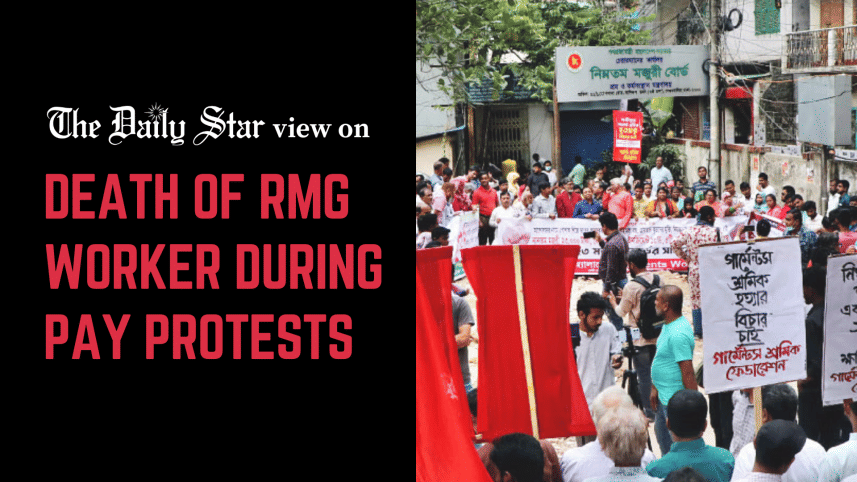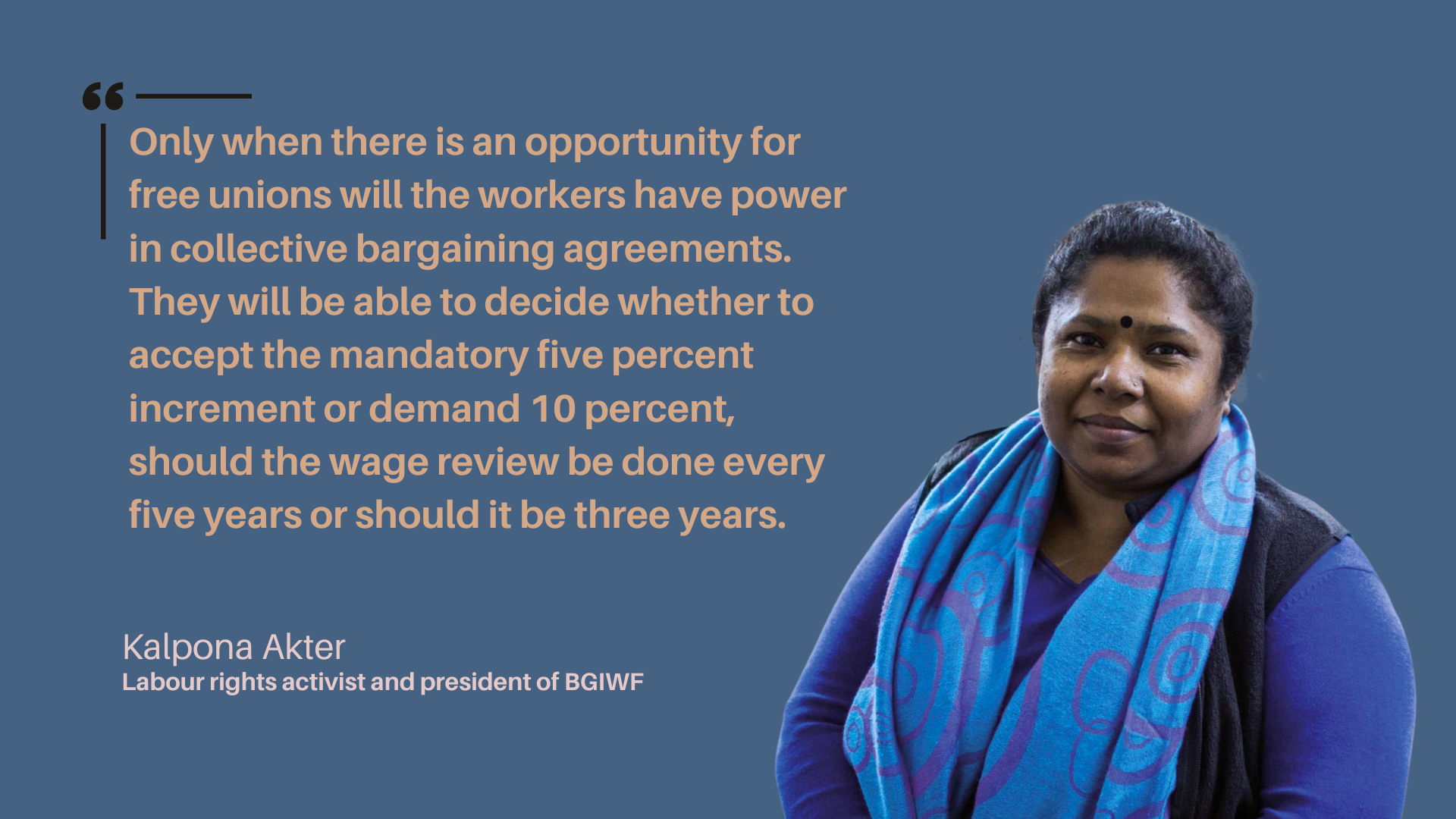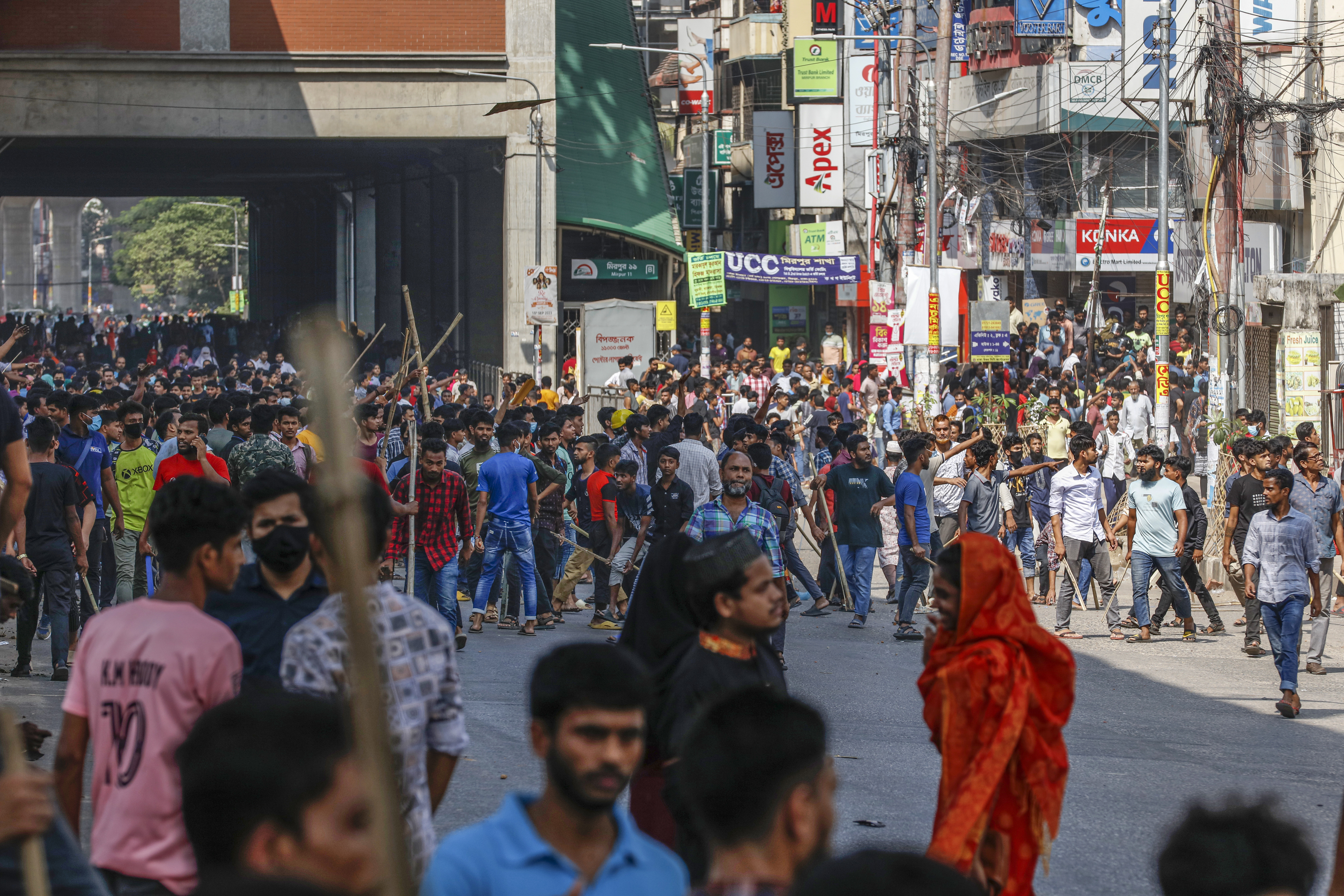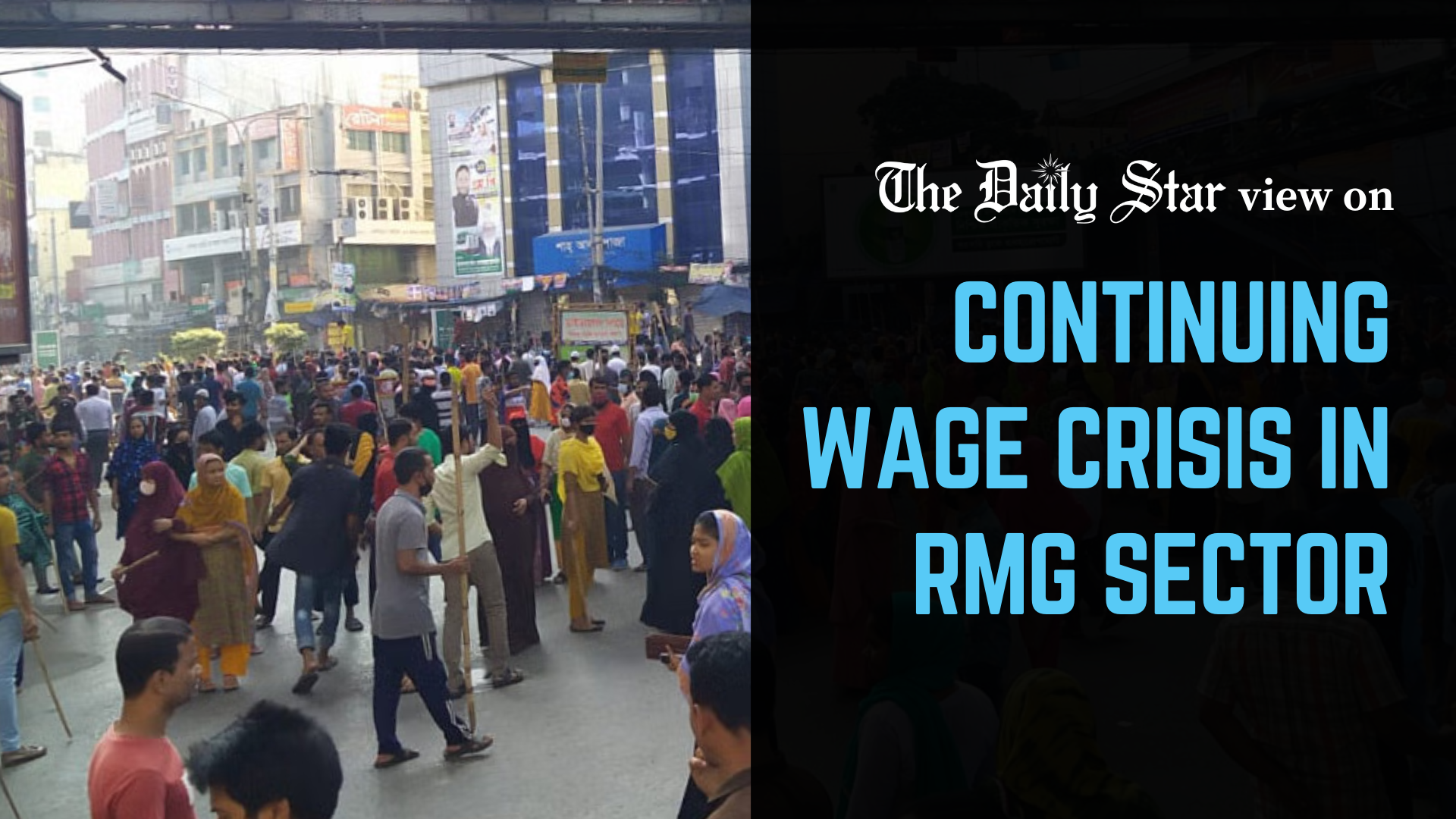What was the point of fixing a new minimum wage?

The reason for hastening the process of fixing a new minimum wage for the RMG sector—after about seven months of relative inactivity by those on the wage board—was to quell raging protests by workers demanding fair wages. Their demonstrations that lasted for 12 days jolted the authorities out of their collective stupor. Factory owners were compelled to improve on their initial offer of Tk 10,400, which had set off the protests, and proposed Tk 12,500, which then was quickly and unquestioningly approved by the board. But reportedly, far from quelling the protests, it has only reignited them, resulting in the tragic death of a female protester at the hands of police on Wednesday.
What was the point of hastening the wage-setting process then? Indeed, what is point of having a bargaining place for it if the decision heavily favours the owners while sidelining workers' representatives, who had proposed Tk 20,393? What did the government expect would happen after such a farcical exercise? There was nothing unpredictable about the reaction of protesting workers. Not only were their demands rubbished, but they were also effectively excluded from the decision-making process. The government has since tightened security to guard factories in Dhaka and nearby districts. Clearly, it was expecting a violent backlash. If its idea of addressing labour unrest was through applying force, it is doomed to fail eventually.
Workers' demands for higher wages, we must say, are rooted in reality. For too long, they have endured meagre wages, even though it is their hard work that drives this industry. The newly announced minimum wage, although a step forward, still falls significantly short of meeting the minimum requirements for a decent life, as estimated by the Centre for Policy Dialogue (CPD) and the South Asia Network for Modelling (SANEM). These organisations' research suggests that a minimum wage between Tk 17,568 and Tk 26,000, depending on the region, is necessary considering the high inflation and soaring prices of essential commodities.
As the president of a labour organisation pointed out, if the current value of the dollar is considered, the new minimum wage amounts to a little more than the Tk 8,000 wage fixed in 2018. In other words, there has been little increase in essence. We urge the authorities to sincerely consider these issues and address them. There is still time to renegotiate and refix the minimum wage, so we urge them to do so. A living wage for workers is a democratic right that must be respected.



 For all latest news, follow The Daily Star's Google News channel.
For all latest news, follow The Daily Star's Google News channel. 


Comments